
Marion Island return voyage – change in date
Expected Time of Arrival: 15 May 2019 (morning)
Place: East Pier, Cape Town Harbour
Photo Credit: Ben van der Walt, 2018 Marion Island take-over voyage.

Expected Time of Arrival: 15 May 2019 (morning)
Place: East Pier, Cape Town Harbour
Photo Credit: Ben van der Walt, 2018 Marion Island take-over voyage.
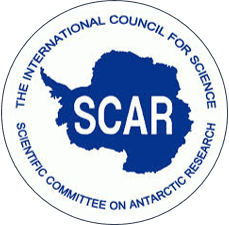
The information below was sent through by the Scientific Committee on Antarctic Research.
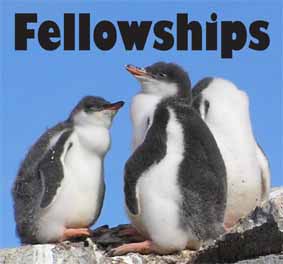
The Scientific Committee on Antarctic Research (SCAR), the Council of Managers of National Antarctic Programs (COMNAP), and the Commission for the Conservation of Antarctic Marine Living Resources (CCAMLR) have been working together for many years to support talented early-career researchers, scientists, engineers, environmental managers, and other professionals to strengthen international capacity and cooperation in fields such as science support and facilitation, environmental management implementation, and climate, biodiversity, conservation, humanities and astrophysics research by way of an annual funding opportunity.
For 2019, these Antarctic organisations are joined by the International Association of Antarctica Tour Operators (IAATO) and the World Meteorological Organization (WMO), who will each support additional Antarctic-related fellowships.
SCAR today launches its 2019 Antarctic-related Fellowships for early-career researchers. SCAR will offer 5 to 6 fellowships of up to USD $15,000 each for 2019, with additional support for the scheme having been provided by India, Korea and France. A new SCAR/WMO Fellowship is also available in 2019 as detailed below. The Fellowships enable early-career researchers to join a project team from another country, opening up new opportunities and often creating partnerships that last for many years and over many Antarctic field seasons. The deadline for fellowship applications is 17 July 2019.
For 2019 there are a number of extra opportunities through the SCAR scheme, with some restrictions on applicability but using the standard application process for SCAR Fellowships:
COMNAP and IAATO have already launched their Fellowship scheme for 2019 and CCAMLR launch their Scholarship scheme with two deadlines in 2019. Details are available at : https://www.scar.org/community-news/fellowship-opportunities-launched/
The SCAR scheme is launched today, noting the complementary schemes of our partners – the COMNAP and IAATO Fellowship Scheme and the CCAMLR Scientific Scholarship Scheme. Full details of these schemes are available on their respective websites below.
For more information on SCAR Fellowships, visit the SCAR website at:
www.scar.org/awards/fellowships/information/
For information on the COMNAP and IAATO Fellowships, visit the COMNAP website at:
www.comnap.aq/SitePages/fellowships.aspx
For information on CCAMLR Scholarships, visit the CCAMLR website at:
www.ccamlr.org/en/science/ccamlr-scientific-scholarship-scheme
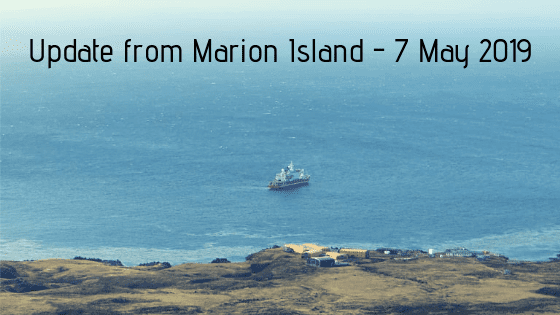
Time on the island is rapidly running out for all passengers returning to Cape Town, this includes everyone except the 76th Marion Island Overwintering Team. The take-over scientists are wrapping up field work and packing containers for back-loading started at this research station.
The first containers were transported to the research and supply vessel, S.A. Agulhas II. Watch the video below to see how a container is transported by helicopter.
These last few days are bitter sweet on the island. The 75th overwintering team returning to Cape Town have to say goodbye to the place they called home for 13 months. A place that was at first maybe something to get used to, and now a very special memory that will last a lifetime. For many this might be the last time they get to visit this pristine island in the Southern Ocean, but for the 76th overwintering team the departure of the vessel is something to look forward to, as they will be able to unpack their personals in their own rooms and settling in, preparing for the year ahead.
The vessel is expected to depart from Marion Island on the 9th of May and the expected time of arrival at East Pier, Cape Town Harbour, is 16 May 2019. The longer return voyage will be used toward oceanographic research on transects between the Prince Edward Islands and Cape Town.
Bon Voyage, see you soon!
https://www.facebook.com/UltimateAviationsa/videos/408739073050873/
Photo Credit: Daniela Monsanto (PhD Candidate, University of Johannesburg)
Video Credit: Ultimate Aviation Group
Anché Louw, Antarctic Legacy of South Africa, 07 May 2019
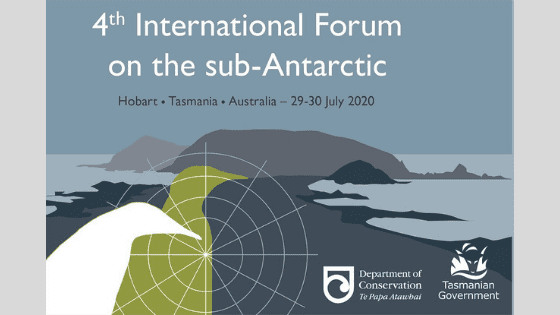

Date: 29 – 30 July 2020
“Come and discuss the challenges facing the sub-Antarctic in a changing world and share ideas for the future”.
Sessions include:
Website: Click here.
Follow subant2020 on Twitter!
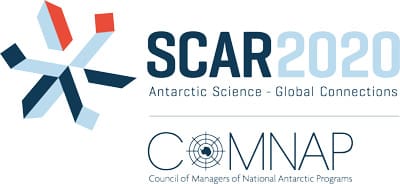
The information below was sent through by the Scientific Committee on Antarctic Research Secretariat. .
Preparations are well underway for the 2020 SCAR meetings and Open Science Conference to be held in Hobart, Australia in July-August 2020. The COMNAP Annual General Meeting will run concurrently with SCAR and the organisers are working to schedule events to encourage participation across the two groups. The OSC theme ‘Antarctic Science: Global Connections’ highlights the scientific connections between Antarctica and the global system and collaboration in our Antarctic science community.
The Local Organising Committee are working closely with the SCAR and COMNAP Secretariats on meeting preparations including an excellent program of conference and side events. Planning for SCAR COMNAP 2020 includes efforts to minimise waste, encourage sustainable resource management and to foster participation inclusion and diversity.
The first pre-conference circular is now available and outlines some key pieces of information about SCAR COMNAP 2020. This includes the conference structure and indicative dates for abstract submission and registration.
The International Science Organising Committee has also developed a draft list of sessions based on input from the SCAR community – it is available for comment on the SCAR COMNAP 2020 website. Comments, suggested changes, proposals for additional sessions and suggestions for sessions to be merged together should be made to info@scar.org by 28 June 2019.
For more information, please check the SCAR COMNAP 2020 website or contact the SCAR COMNAP 2020 Project Manager, Rhonda Bartley at the Australian Antarctic Division – email: SCARCOMNAP2020@aad.gov.au
We look forward to seeing you all in Hobart next year!
Kind regards,
The SCAR Secretariat
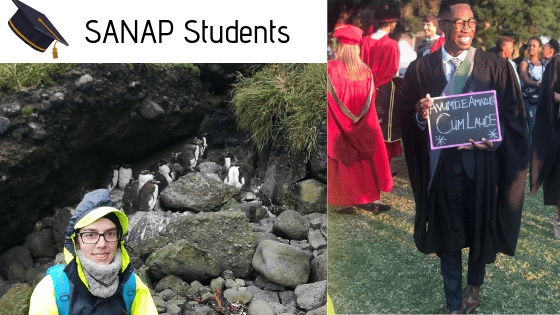
Congratulations to Daniela Monsanto and Mthoko Twala, two SANAP students completing their Masters degrees, both with cum laude, within the field of biology.
Daniela completed her degree at the University of Johannesburg, under the supervision of Prof Bettine van Vuuren. This Masters was part of the SANAP project: Biocomplexity: Understanding biological patterns in space and time. Daniela examined fine-scale spatial genetic patterns in one of the most dominant and ecologically significant soil organisms across the sub-Antarctic region, the Collembola Cryptopygus antarcticus. Her work highlighted a genetic discontinuity, which when overlaid onto a detailed geomorphological map of the area, coincided with a 3 meter ridge (for Collembola, this height is equivalent to a human scaled to 2.5 times the height of Table Mountain).
Mthoko completed his degree at the University of Pretoria, under the supervision of Dr Michelle Greve. This Masters was part of the SANAP project: Invasions in the changing sub-Antarctic. Mthoko assessed whether the invasive plant, Sagina procumbens, disproportionately benefits other invasive species on Marion Island. He found mixed results, with invasive plants necessarily benefitted from Sagina, but invasive collembolans benefitting more than native collembolans.
Congratulations to the students, as well as the supervisors.
https://www.facebook.com/AntarcticLegacySA/posts/853552648317012
https://www.facebook.com/AntarcticLegacySA/posts/854122318260045
Anché Louw, Antarctic Legacy of South Africa, 30 April 2019
East Pier Shed, East Pier Lane,
V&A Waterfront, Cape Town,
South Africa